Welcome to our October & November Newsletter!
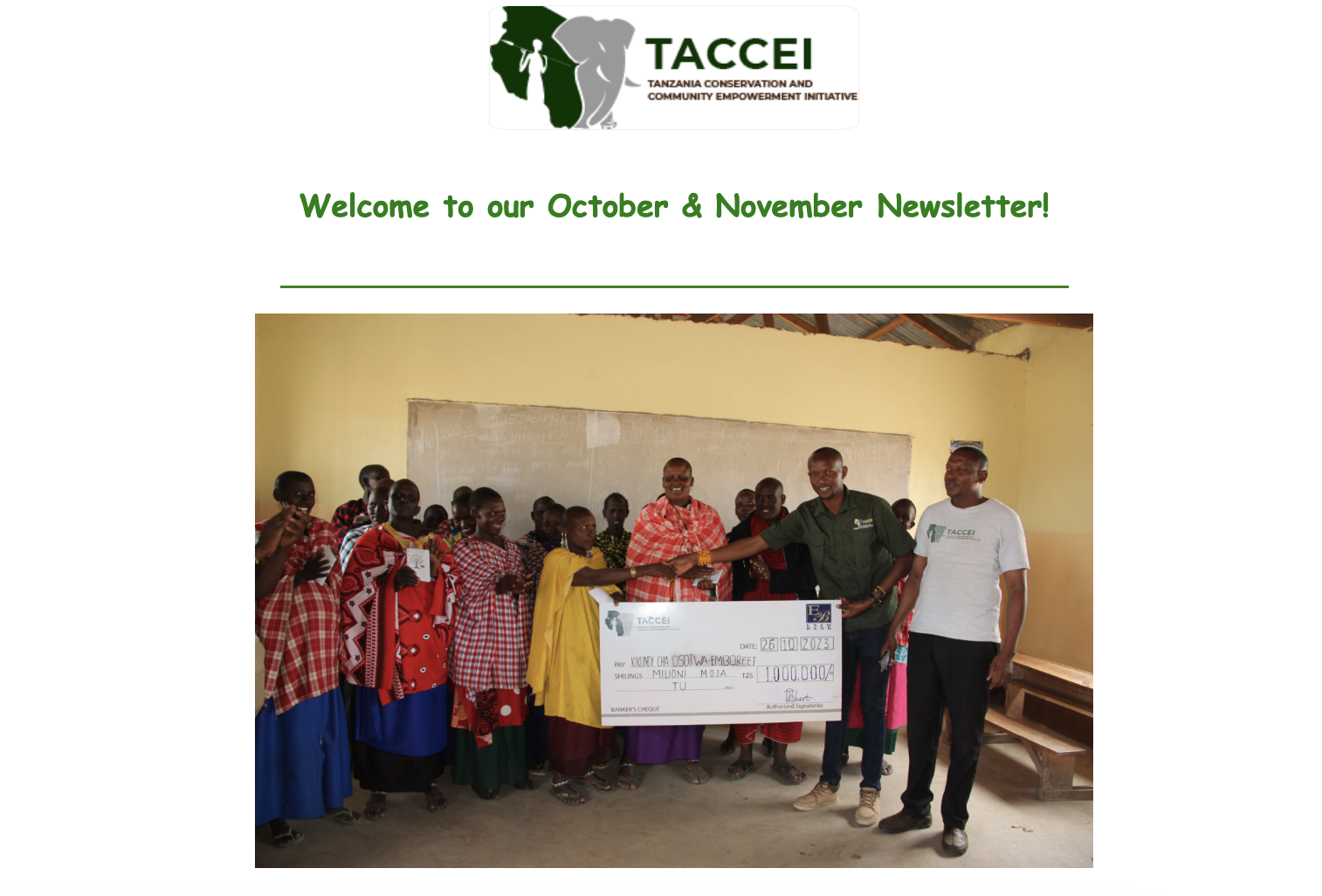
We are thrilled to present to you our October and November newsletter, which is packed with news you won’t want to miss.
Enjoy the read, Karibu!
Supporting eco-friendly entrepreneurship in developing and implementing cutting-edge approaches to combat desertification, halt deforestation, and protect biodiversity among Maasai women in rural Tanzania
Building community capacity and making investments in areas where the exploitation of ecosystems rich in biodiversity is the primary source of income is necessary to mobilize smaller players to conserve biodiversity. It calls for governance to shift away from monocultures and other industries that harm ecosystems, as well as an understanding of the connections between equitable development and biodiversity preservation, which simultaneously drive climate change and equality. We need a mix of financial stability and capacity building to accomplish this effectively.
Although hundreds of thousands of pastoralists now face significant household insecurity due to rangeland degradation, which affects 60% of Northern Tanzania, pastoralism remains the only viable industry in these communal lands rich in wildlife.
With support from FEMI and our stakeholders including the Simanjiro District Council and the local communities in rural Simanjiro, we’re implementing the Maasai Women Empowerment and Climate Change Adaptation Project (MWECCAP), a two-year project spanning five villages across the two wards of Terrat and Emboreet. The project’s main objective is to create climate change adaptation measures and community resilience for more than 2000 Maasai women through capacity building, economic empowerment, and elimination of gender-based violence.
Through economic empowerment, TACCEI is supporting 22 women groups from four villages of Terrat, Loswaki, Emboreet and Engonongoi through an interest-free loan which is accompanied by entrepreneurial skills and coaching.

Maasai men grazing their livestock in Northern Tanzania’s Simanjiro plains
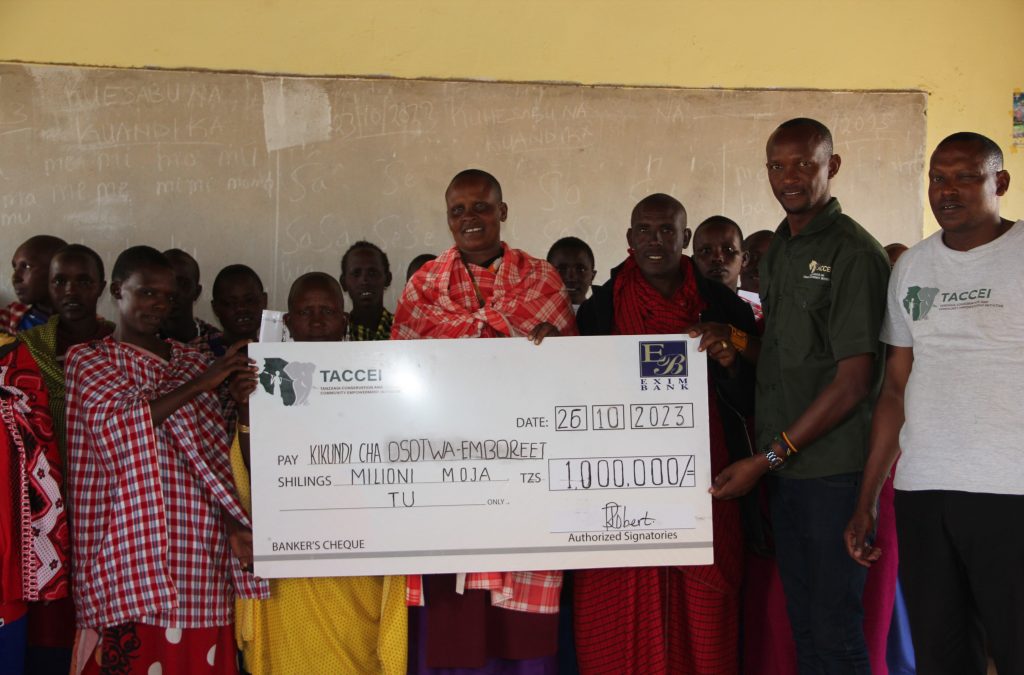
TACCEI’s Director, Justin, and the team handing over bank cheques to project beneficiaries at Loswaki and Terrat villages.
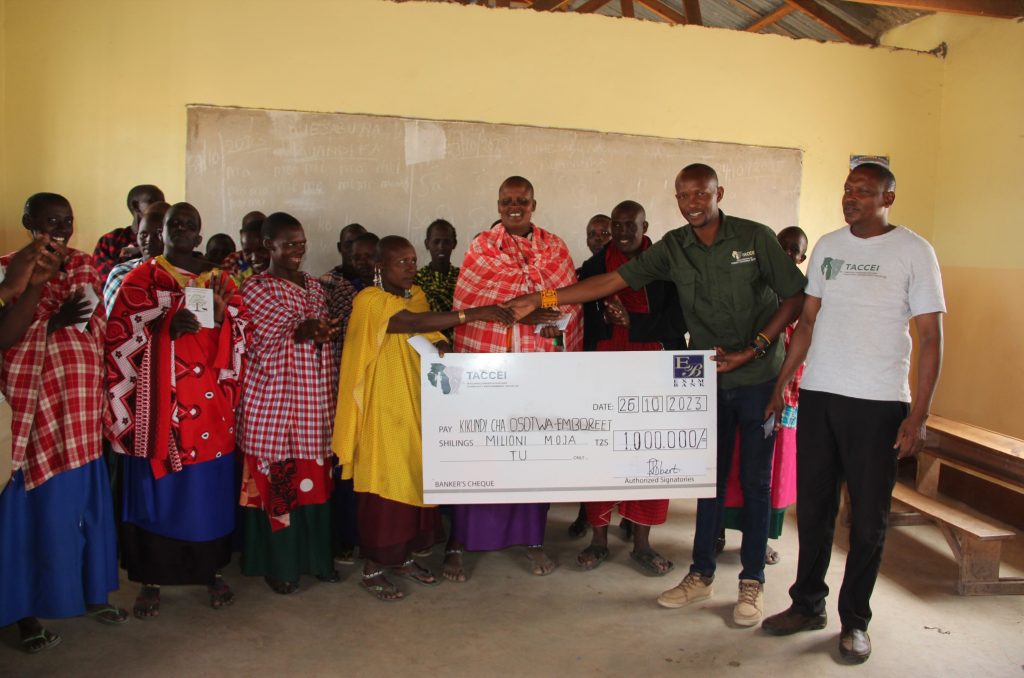
Over 200 women benefited from loans in the first phase and the number will double in the coming year. Combined with the support and guidance from our Microfinance team, interest-free loans bring a wealth of benefits to the community we serve including facilitating future investments and supporting community development as well as protecting biodiversity and fighting against the devastating impacts of climate change.
Agness Lemuna is one of the entrepreneurs we have supported in the sub-village of Ingung’ in Emboreet village. Being a widow, she relies on her small business to support her family of seven (7) children where she sells soft drinks and snacks in local markets.
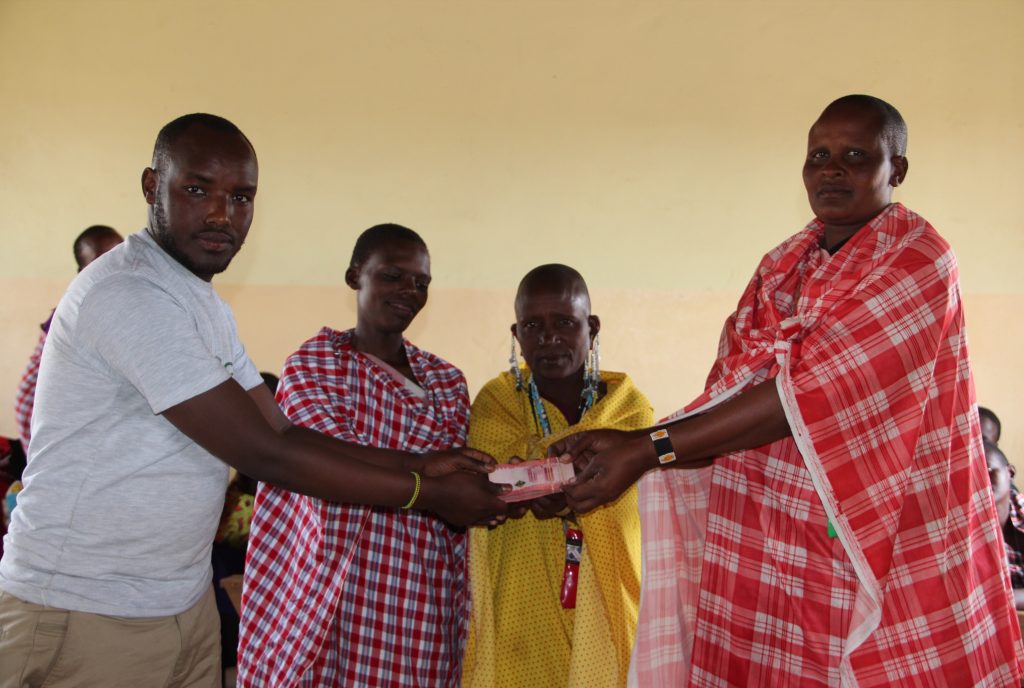

One way to combat poverty and protect the environment is through sustainable gardening practices. Through our MWECCAP project, TACCEI places local Maasai women and the community in general at the front line of addressing climate change through their day-to-day economic activities. The dry season was very tough because of the shortage of water in the Simanjiro but that means the higher demand for vegetables in the community. “Yohana Mollel, MWECCAP Project Officer”
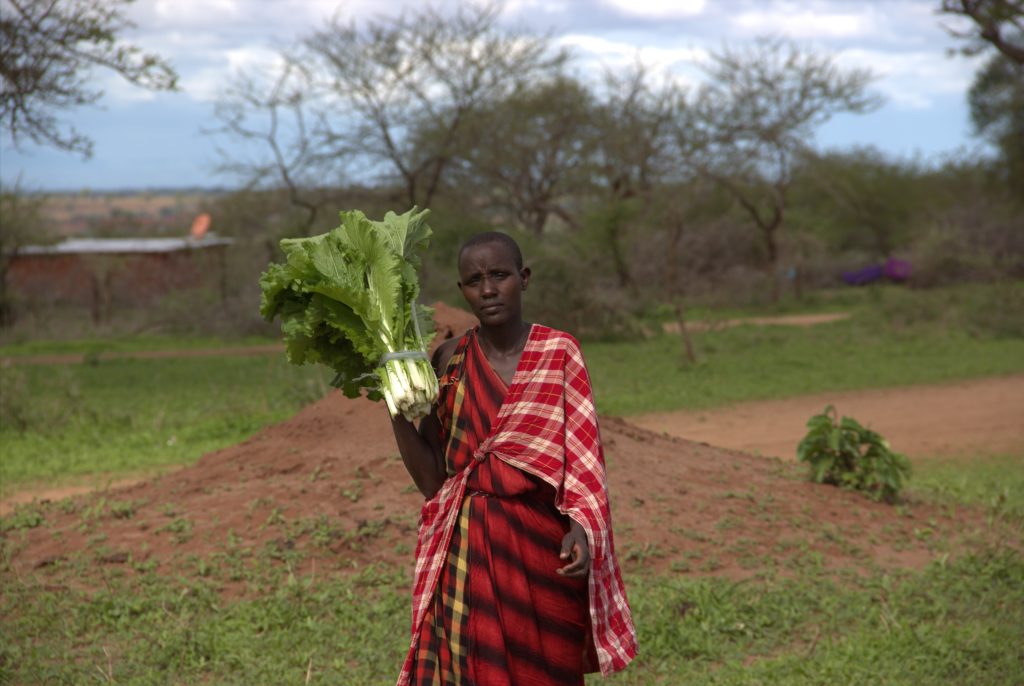
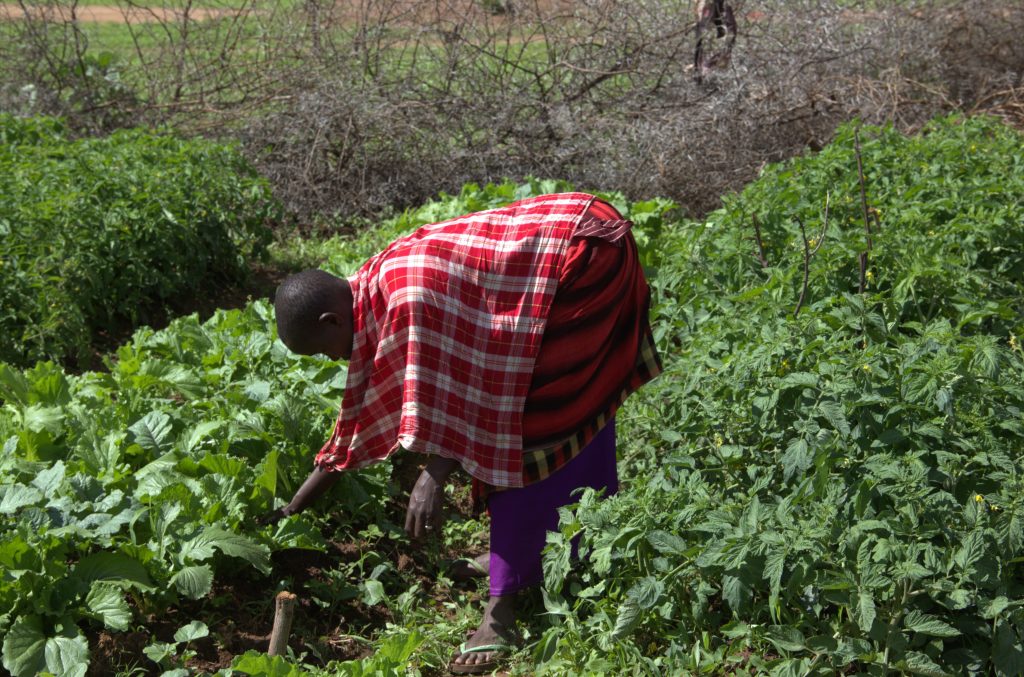
I participated in a training on perennial vegetables from TACCEI, including chaya, moringa, cassava leaves, and katuk, through our women’s group. These highly nutritious perennial vegetables were demonstrated to us in terms of their production and preparation. Perennial vegetables are rich in vitamins, minerals, and other nutrients that are necessary for maintaining our health, as we were taught.
It’s hard to find seasonal vegetables during the dry season, so I’m glad I got this training because it allowed me to grow these vegetables for my family’s consumption as well as to sell and earn more money from produce sales. “Susana Shinini, a garden beneficiary from Engonongoi village”.
This year we started an exciting partnership with both Wilde Ganzen and Global Exploration, through a one-year Fighting Climate Change through Tree Planting and Environmental Education (FCCTPEE) project for twenty schools in the Maasai districts of Simanjiro and Longido in northern Tanzania. Through the FCCTPEE project, we’ve established a total of ten environmental clubs “TACCEI MAZINGIRA CLUBS” in the Simanjiro district with ten more clubs to be established in the Longido district in early 2024. In total, our environmental education clubs bring together more than half a thousand students from both primary and secondary schools in rural Tanzania, equipping them with essential skills and a passion for nature conservation.
Through monthly visits to each club, our program plays a significant role in shaping pro-environmental behavior using three factors: social interaction, program structure, and various teaching methods.
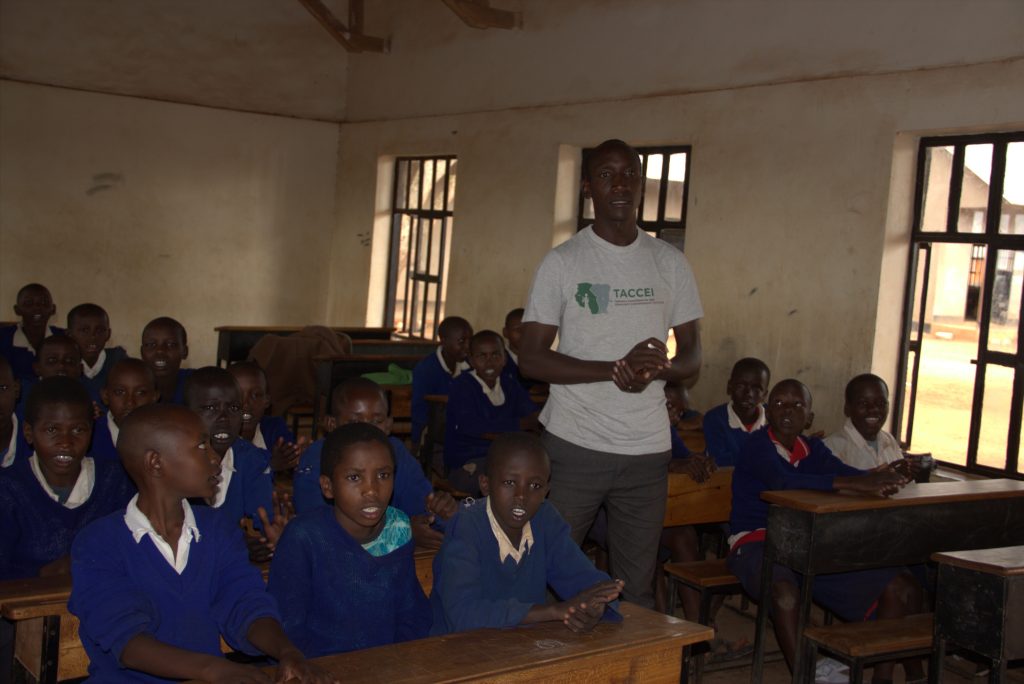
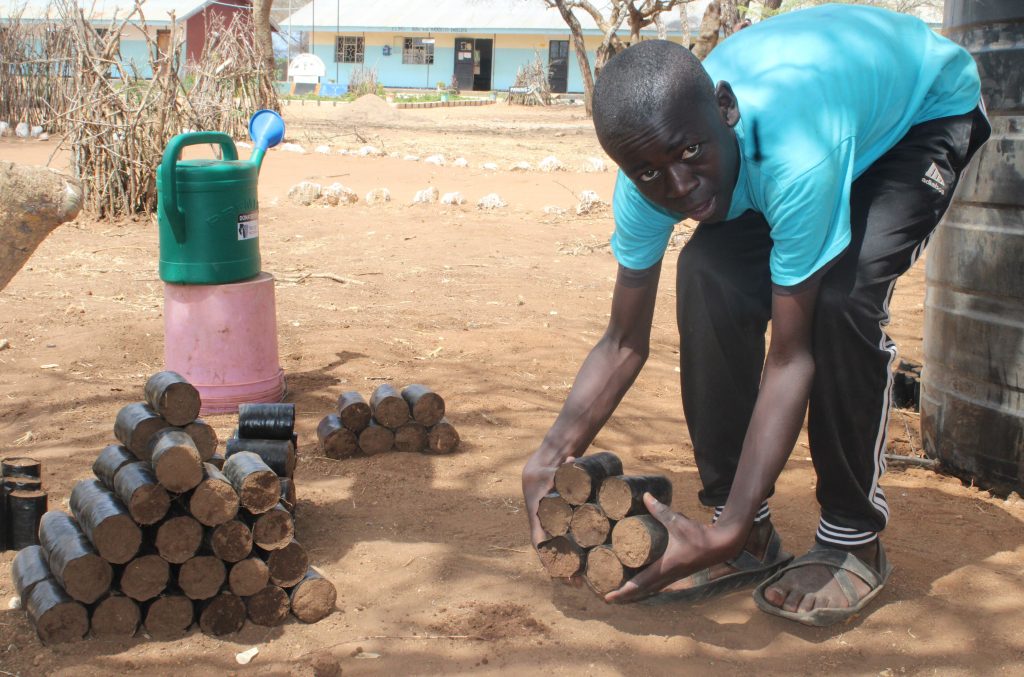
Our monthly club visits feature developmentally appropriate content, social settings that foster a sense of community, and a variety of instructional techniques that can foster a good experience and encourage pro-environmental behavior. In addition, our program enables students to engage with their local surroundings through a variety of instructional techniques, all aimed at empowering kids to assume leadership roles, develop critical thinking abilities, solve problems, and foster teamwork.
Green Food Foundation visits, October 2023
In October, we were honored to host the Green Food Foundation from the Netherlands, led by Wendy (FEMI’s Board member) and Leo Verzijl, Green Food Foundation’s Founder and Chairman.
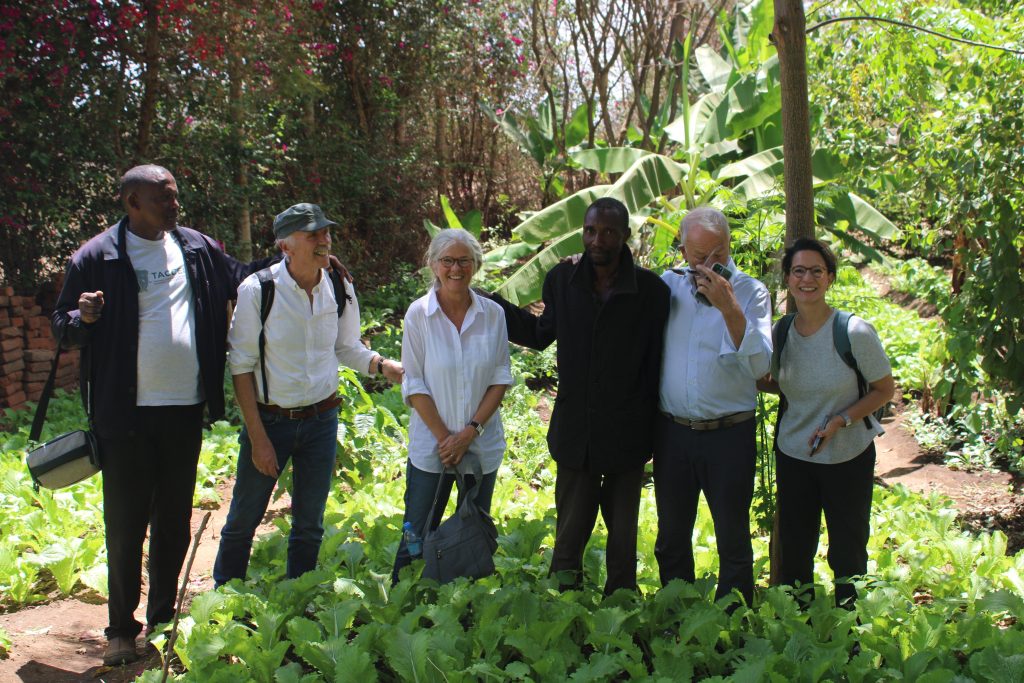
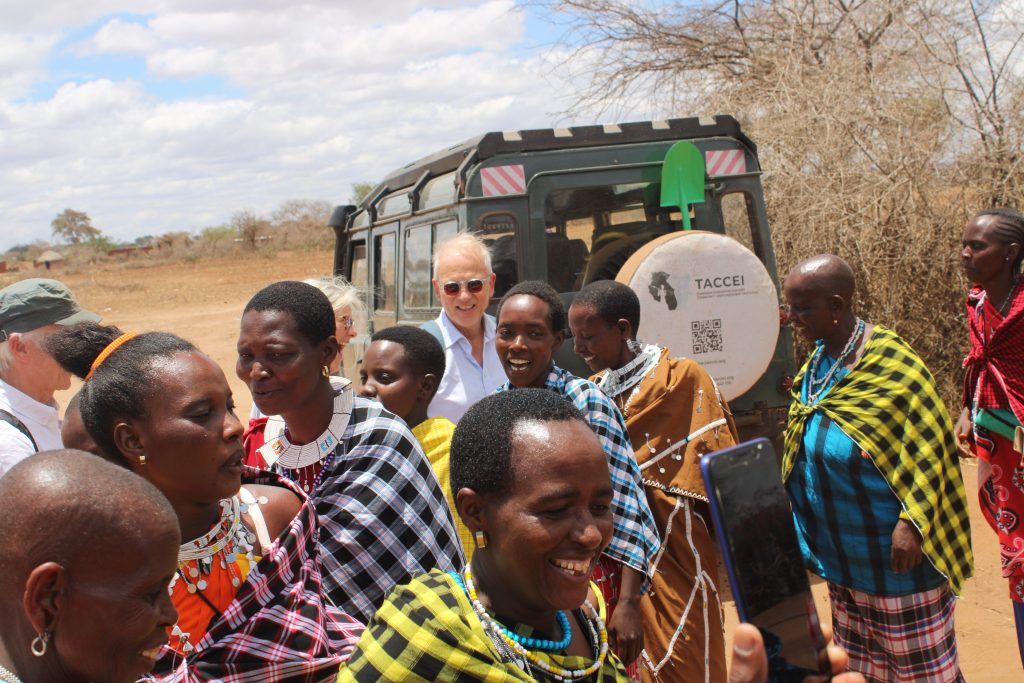
Wendy and the team visited our eco gardens in the village of Loswaki and one of the women entrepreneur groups. They were impressed to see the green gardens in the middle of the dry village of Loswaki. Their interaction with the women was a great opportunity to learn about their micro-business and nutrition.
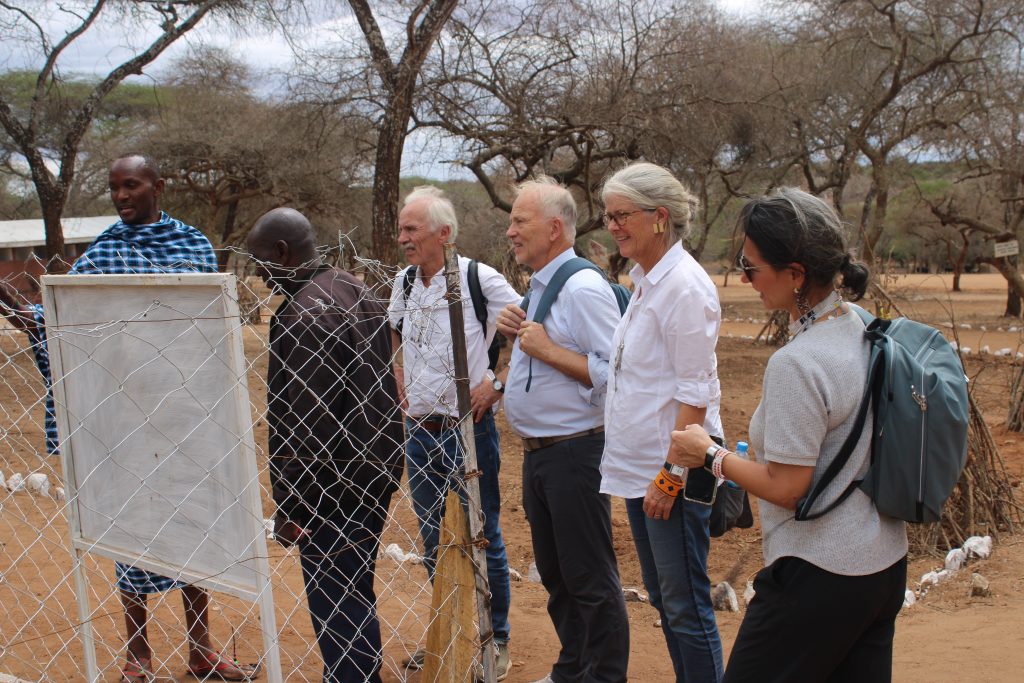
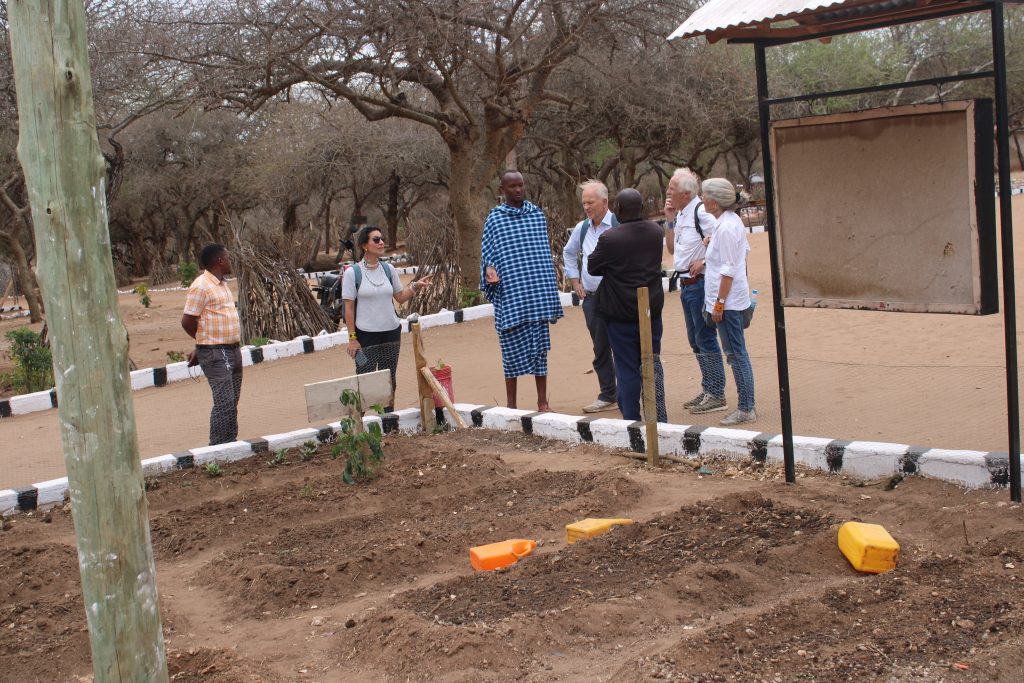
Furthermore, Wendy and the team visited our long-term partner, Terrat Secondary School, a community secondary school located in the village of Terrat. For a while now, we’ve been supporting the school in environmental-related issues and nutrition through the establishment of a tree nursery and a vegetable garden for students.
At TACCEI, we welcome partnerships in supporting our projects. Kindly reach out to us to discuss the partnership possibility.
If you enjoyed reading this update, kindly forward it to a friend. You can subscribe to our newsletter by filling the form on our website.
Every little bit helps, please visit our website to donate and help our Maasai women start their eco gardens or help us establish a tree nursery in a much-needed school.
THANK YOU – ASANTE SANA!
As always, we thank all our partners and sponsors for their generous and committed support.
Our physical address is:
Tanzania Conservation and Community Empowerment Initiative (TACCEI)
P. O BOX 9596 | Veterinary Building – Terrat Village | Simanjiro – Tanzania.
WhatsApp: +255 743 641 176
Email: info@taccei.org
